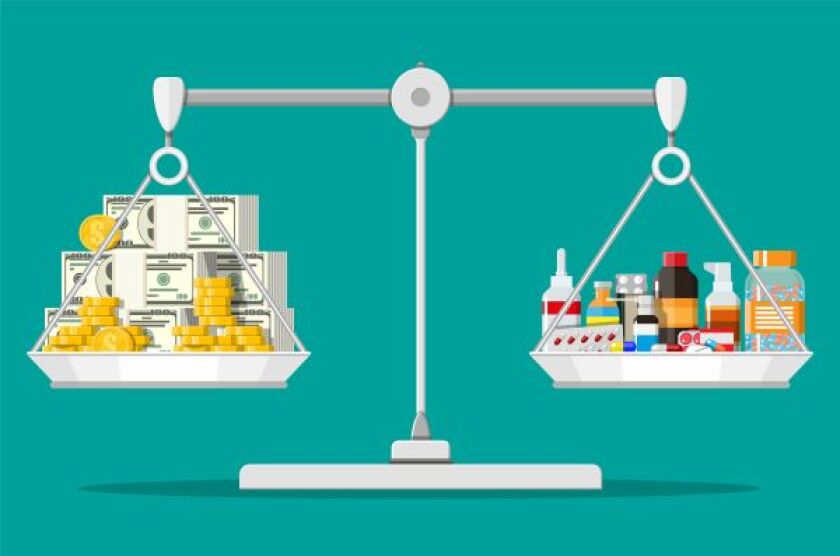On his way out the White House door, Donald Trump left a present for the pharmaceutical industry in the form of proposed changes to the Bayh-Dole Act that would weaken protections for access to inventions funded with taxpayer money.
The reforms in question concern the so-called “march-in” orders that were included in the act as a compromise to ensure that all inventions created with federal funds are made available to the public “on reasonable terms”. In specific circumstances the government can march in and either grant, or require the patent owner to grant, licences to third parties.
On January 4, the departing Trump administration proposed changes that would make it impossible for the government to grant march-in orders based on price alone. A week ago today, on April 5, the US Department of Commerce’s National Institute of Standards and Technology closed comments on Trump’s proposals. It received more than 8,000 comments.
Bayh-Dole, which was signed into law in 1980, said that federal contractors (such as universities or private companies) that received public funding would maintain ownership of all intellectual property rights pertaining to the outputs of that research. Before the act, private companies were reluctant to use federal funding because there was no guarantee of patent rights, and as a result much of the research was never used.
Over the past 40 years, the act has been hailed as an overwhelming success for breaking down the barriers between public and private research and adding $1.7 trillion to the US economy.
However, what makes this act controversial several decades later is the meaning of the words “on reasonable terms”. As we have reported, members of the pharmaceutical lobby claim that if march-in orders are used to control prices, it will create an uncertain business environment that will have harmful effects on innovation.
But reasonable minds can disagree on what is reasonable.
Related stories
Pharma fears corruption of ‘hugely successful’ Bayh-Dole Act
Delinkage embraced in national elections as alternative to patents
Sky-high prices
It is no secret that Americans pay more than any other country for medicine, and that US taxpayers are the single biggest funders of medical research. A 2016 research paper looked at annual health research expenditures, showing that the US National Institutes of Health (NIH) was the biggest global funder of medical research at $26.1 billion, followed by the European Commission at $3.7 billion. Between 2010 and 2016, the NIH provided over $100 billion in research money and contributed funding to all 210 new drugs approved by the Food and Drug Administration.
American lawmakers understand basic principles of investment: that when an investor gives money to a private company, and that private company makes money, the investor is entitled to a reward. When it comes to their own investment in medical research, what the American taxpayers are asking is that medicine be made available at reasonable prices.
One of the biggest arguments against march-in orders is that private companies need the monopolies so they can charge high prices that allow the recuperation of R&D costs. The argument goes that if parties can demand lower drug prices simply because they paid a portion of drug development costs, companies will be less likely to invest in research into new drugs in the future.
The problem is that not only do Americans pay astronomically high costs for medication compared to the rest of the world, but those costs alone more than cover investments in R&D. A 2017 report from the Center for Health Policy and Outcomes at Memorial Sloan Kettering Cancer Center showed that the premium prices (i.e. the difference between what the US and Europe pay for the same drug) exceeded the costs of R&D for the top 20 best-selling drugs.
This suggests that pharma innovators are making back their investment entirely from sick Americans, and that providing drugs at more affordable prices will not affect innovation pipelines.
The authors of the act have since argued that the wording “on reasonable terms” never meant to include price control. This begs the question, if they did not intend price controls, what else did they mean? Unfortunately for the act’s sponsors, the US Supreme Court ruled in the 1998 Oncale v Sundowner Offshore Services decision (written by Justin Antonin Scalia): “[I]t is ultimately the provisions of our laws rather than the principal concerns of our legislators by which we are governed.”
This means that it is the language enacted by Congress, not the authors’ later retelling of intent, that matters.
There is the argument that although US taxpayers contribute to medical research, the private investments made by pharma companies far outstrip public funding. In 2017 the US National Science Foundation looked at the breakdown of public-private funding for medical research, and found that for the first time since World War II, federal agencies provided less than 50% of all funds for medical research.
But the data came with a caveat. The authors of the study said that 30% of all private pharma companies did not fill out the survey, while nearly all universities did. It is also well known that early-stage research, which is the most risky, is largely done with public funding and is then later bought by private companies. This means that in many cases it is taxpayers, not private companies, that are taking on the business risk of investing in failed research.
A fair bargain
When faced with a politically charged question that requires nuance, American politics tends to see everything in black and white, as winner takes all. The words “on reasonable terms” need not fall into this trap. If the public can successfully demand lower drug prices for a medicine that is unaffordable, it does not mean that every single drug ever produced will suddenly become as cheap as aspirin. There is a middle ground here, but eliminating the option to march in is nowhere in that middle ground.











